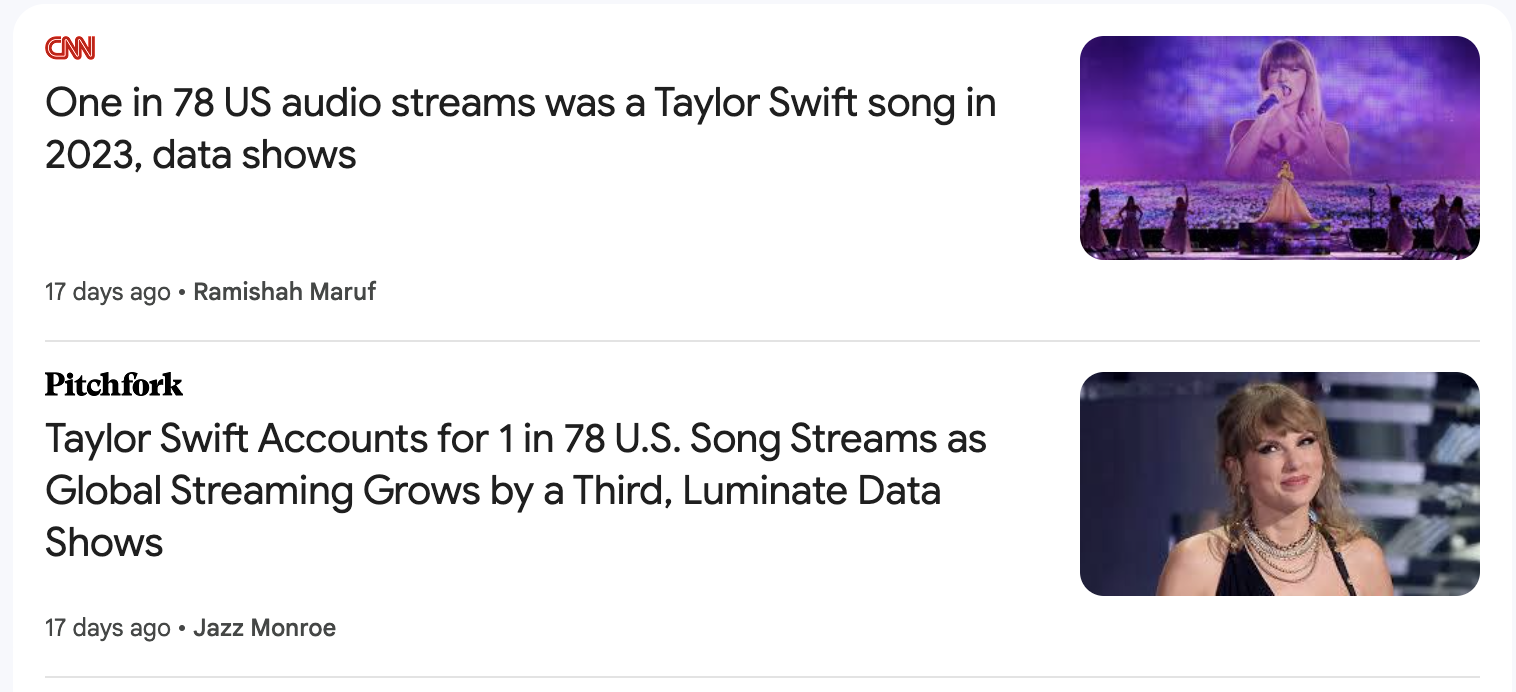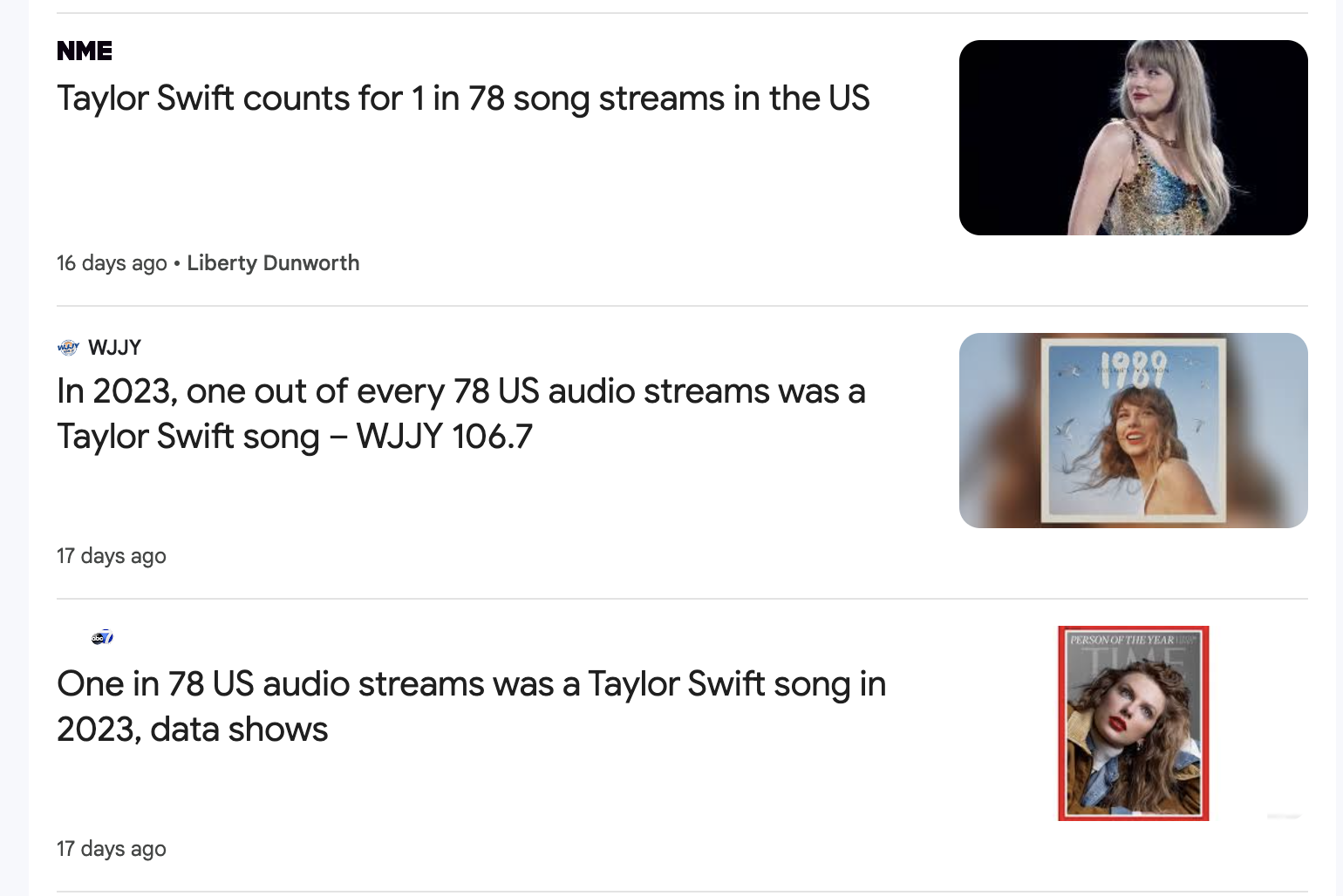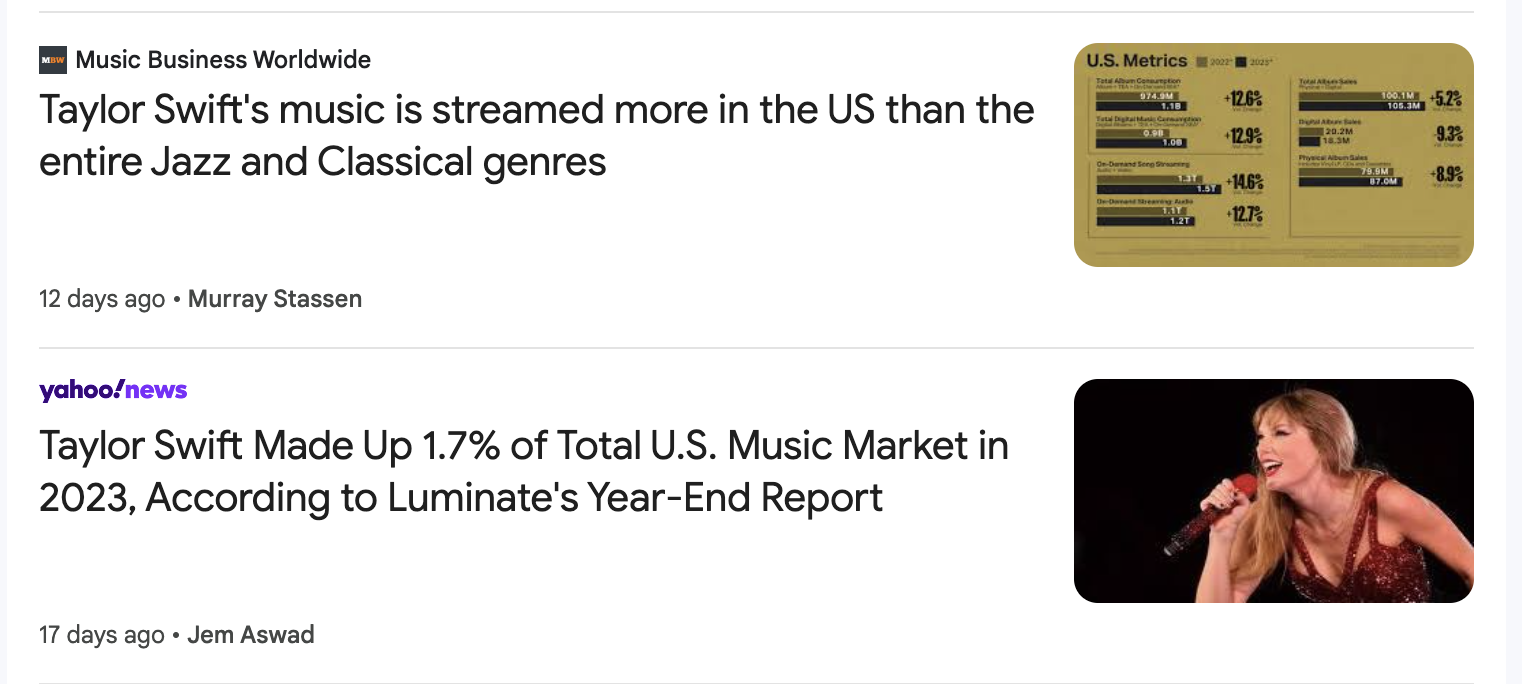Music Journalism is Dead; Long Live Music Journalism
There’s been a lot of discourse surrounding the Death of Music Journalism over the last week or so, spurred on by the announcement from publisher Conde Nast that music review website Pitchfork was going to be moved under the umbrella of men's magazine GQ.
The histrionics over this felt overblown because the sad truth is that music journalism of the type that you used to find in outlets like Pitchfork has been dead for a while.
When I was a teenager in the 1990s, I lived for finding an imported copy of the NME or Melody Maker so that I could find out what was new and cool and trendy in the world of popular music. Melody Maker is long gone and the vaunted NME, like Rolling Stone, has turned to click farming #content. Do we really need another thinly re-written version of the same story about Taylor Swift having one in every 78 songs streamed, according to Luminate from Pitchfork? Is that the “music journalism” we’re all supposed to care about so much?
Music reviews and music journalism used to provide us with guideposts of taste or, from the best practitioners, longform looks at cultural trends. Here’s Greil Marcus in the Village Voice in 1977, looking at the burgeoning genre of Beatles Nostalgia:
“The last pages of Shipper’s book—the aftermath of the Frampton concert—are so bitter, so depressing, that they should warn off all those who still clamor for One More Time. But they won’t. The clamor will continue, and I am almost ready to believe that in the next few years the Beatles will have to move toward the fulfillment of what has now become perhaps the most widely shared fantasy in rock and roll.”
Was there anything at the major outlets as poignant on the “new Beatles song” released in 2023 as Marcus was in 1977? If the Village Voice covered it, my search didn’t uncover anything. Pitchfork gives a dry summary of the technology involved “Why the Beatles’ Last Song Couldn’t Have Existed Until Now” which is slightly better than the vomitous PR-fest going on over at Rolling Stone (“emotionally powerful”). Over at Variety, the critic tasked with reviewing the song hemmed and hawed and danced around saying “it was mid:”
“A glass-half-empty take would point out it certainly sounds like a rough and incomplete sketch of a song reassembled and elaborately embellished, rather than a complete one. The lyrics in particular bear this out: It’s hard to imagine Lennon being happy with lines like, “I know it’s true, it’s all because of you/ And if I make it through, it’s all because of you,” which recall the dashed-off lyrics of early Beatles songs and the lightweight practices the group, inspired by Bob Dylan and others, railed against in the mid-1960s. Likewise, the song has clearly been reverse-engineered into a conventional structure— as McCartney can be heard in the video arranging individual parts.
But such meh takes are the reason why people hate critics, and there’s not much point in raining on the parade.”
There’s not much point in raining on the parade?? Then what on earth are critics for? And why should we, as music fans, care that the profession seems to be heading the way of the TV Recapper (many of whom seem to be drifting into music “journalism”)??
In recent memory, the critical side of Pitchfork seemed to offer not much more than grist for review score aggregators and poptimist fan wank material. Unlike the old days when I was hoarding copies of Melody Maker, the average listener doesn’t need 500 words and score out of 10 to guide their blind purchase of a $20 CD from an artist they’d have no way of hearing before purchase. Today, we can just dial up the artist on Spotify or Soundcloud or YouTube and make up our own minds on whether or not to keep listening. Increasingly, the only people engaging with reviews from outlets like Pitchfork are people who are already fans of the artist and who want to see their opinions confirmed by an “authority”. It encourages a nasty feedback loop where “reviews” are written by stans of the artist, whose glowing scores feed the review aggregators and which are then used as “proof” in various online fan wars.
Imagine if you will, by chance, a curious listener from 2002 stumbled unaware into this 2020s review ecosystem. Beck’s Sea Change was given a 6.7 rating by Pitchfork, the reviewer complaining:
“On Sea Change, Beck sounds intentionally world-weary, but it's the songs themselves that sound labored. Is it no longer enough for Beck to write profound, genre-bending tunes that stand on their own? Does he really need the crutch of suffocating overproduction and bold strokes of orchestration to shock us into caring again? Two turntables and a microphone, man!”
YMMV on Sea Change, which has been retroactively canonized as a masterpiece, but it’s not an unfair critique of Beck in 2002. Now imagine, taking Sea Change as your basis for a 6.7 and then stumbling into a review of one of the most poorly put together mainstream Top 40 pop albums I’ve heard in a long time and it’s a 6.3 and the review spends more time on fan narrative and lore than in evaluating the actual musical content of the album:
Unlike most of their K-pop peers, the BTS prototype was constructed specifically around rap. “I had considered putting together a hip-hop crew, not an idol group,” Big Hit CEO Bang Si-hyuk, also known as group producer Hitman Bang, told Time last year. “But when I considered the business context, I thought a K-pop idol model made more sense.” BTS rappers RM, Suga, and J-Hope were the holdover trainees from that original vision; Bang Si-hyuk refers to them as the group’s “musical pillars.” Tiger JK, of the trailblazing Korean rap group Drunken Tiger, has claimed that BTS cornerstone RM broke the stigma of idol-group MCs as mere roleplaying puppets. Rap-laden art-pop is still what they do best, but they’ve diverted their focus of late. In its attempt to placate every type of BTS fan, 7 sacrifices what’s most effective about the unit.
Uh-huh. “Unlike most of their K-Pop peers…” Yeah, sure, Jan. Except for BigBang, Block B, Winner, Ikon, BAP… Remind me again why we need this alleged “expertise” from the current iteration of Pitchfork?
Now, if you want to bring back the 0.0 reviews and Beck’s Sea Change with the 6.7 era, then that’s a different story but for the most part that kind of critique has moved to places like Reddit and various Substack blogs and music podcasts—with a few exceptions from old heads still doing good work at legacy publications.
What separates those old head writers from the stan journalists and TV Recappers looking for more freelance gigs is 1) some kind of musical knowledge and 2) context. I may not always agree with Tom Breihan’s personal opinion on songs but I’d never miss an update to his column, The Number Ones.
Back in July I tossed off a hasty response to the “Best” “K-Pop” songs list from Rolling Stone because I felt it lacked both musical knowledge and context and it annoyed me to see it being discussed as a serious list and I wasn’t the only one who felt that way. I’ve been circulating a much better response to the list than mine from Korean music website Zenerate (the critique was translated into English by the website), and it ends with a scathing indictment on the K-Pop media:
“This list is a textbook example of how so-called “music journalists” operate with a superficial view of Korea, a myriad of misunderstandings, and a blatant disregard for proper reporting. These are the “professionals” that cover K-pop for major foreign media.”
But you know, Zenerate isn’t wrong. I’ve been thinking about this a lot as I pull together a series of episodes on the musical history of BigBang and looking at some of the truly dumb coverage of them in the English language “K-Pop” media has me wanting to tear my hair out. E.g. the allegedly authoritative source cited in the English language Wikipedia entry on “Haru Haru” calls the song a “hip-hop ballad.” Uhhhh what?
What “Haru Haru” did, following the surprise hit of “Lies,” was bring the sounds of the Japanese DJs whose Shibuya-Kei lounge music had been widely circulated on the Korean social networking site CyWorld, into mainstream pop music. I’m not sure what exactly is “hip hop” about Shibuya-Kei DJ Dashi Dance, co-writer of “Haru Haru” and best known at the time for his epic sets of Studio Ghibli songs. And I’m also not sure what about the song is a ballad, considering the BPM is far above the normal ballad range.
Words, who needs them to mean anything specific!
So, if bringing back Pitchfork circa 2002 is on the agenda or somehow uncovering and platforming writers like Greil Marcus, then, yes, we need to save Music Journalism (™) but I think that battle was lost to the TV recappers a long time ago.



